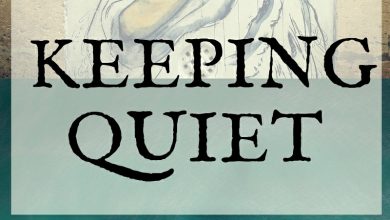
A Letter to God by G. Fuentes is a short story written in third-person, about a farmer named Lencho. When a hailstorm destroys his year’s harvest, he writes a letter to God asking for money, and sends it to him through post. A Letter to God is a humorous story about a man’s faith, the dependence it brings along, and the fine line between faith and ignorance that exists in the world.
A Letter to God | Summary
The story begins with a description of a setting– a lone house on the crest of a hill, a flowing river, and a field of corn dotted with flowers. All that is needed is a downpour to provide water for the growing plantation. Next, we are introduced to the main character, Lencho, the owner of these fields who knew them by heart. He sees the upcoming clouds and tells his wife that they will get water that night.
During dinner with his wife and two sons, the skies open and rain starts pouring. The family is delighted, running outside to drench their bodies. The man likens the raindrops to coins, the bigger ones being worth ten and the smaller worth five. Their excitement is short-lived, however, when the wind blows harder and the rain turns to hail. It continues for hours, until the fields are covered with salt-like hailstones– the corn is ruined. Lencho comments that even locusts would have left more than the hail had. All their hard work had vanished.
Lencho is terribly worried- with the destruction of their only income, they may have to starve for a year. The only thing that keeps him going is his trust in God. He decides to write a letter directly addressed to God himself, requesting 100 pesos. With full faith and firm belief, he drops the letter off at the post office, “To God” written clearly on the front of the envelope. The postmen are understandably amused– after all, where are they supposed to deliver such a letter? But at the same time, they cannot help but admire the man’s faith.
The postman considers writing a letter in response to Lencho, addressed by God, so as not to break the farmer’s faith. However, when he opens Lencho’s envelope and sees the plea for money, he realizes that a simple response letter will not suffice. The postmaster decides to pitch in as much as he can, even requesting friends for some donation as an act of charity. 100 pesos is quite the amount, and they are only able to collect 70. Still, wanting to help in any way he can, he seals the 70 pesos in an envelope, labelling it “From God” and keeping it aside to give Lencho when he returns.
When Lencho arrives the following Sunday to see if he had any response, he is not surprised to receive the envelope- so strong was his trust in God that he was sure it would come. The postmaster feels content at having done a good deed. But when Lencho opens the envelope, he is far from content- there are only 70 pesos, as opposed to the 100 he requested! Surely God could not have made a mistake. Lencho immediately gets some new paper and ink to write a follow-up letter to God. In the letter, he asks for the rest of the money as he needs it very much, and also adds that it’s better for God not to send the money through mail– because the post office workers are all crooks. Lencho assumes that God definitely sent him the right amount, and it was the post office workers who stole 30 pesos from it.
A Letter to God | Analysis
Gregorio López Fuentes was a Mexican novelist. He often wrote based on experience, and was inspired by interactions with various people, including farmers and laborers. He is well known for his humor while writing, as well as the way he captures elements of Mexico and the Mexican lifestyle. His writing is also realistic– this can especially be seen in A Letter to God. Despite the witty plot twist at the end and the overall amusing finish, one cannot deny the truth he presents, especially about the reality of a farmer’s life, misunderstandings and misconceptions. A Letter to God portrays how one situation can look to two different people. This story is written in third-person, and Fuentes employs dialogue, vivid description- especially in the scene describing the rain, hail and wrath of nature- and symbolism. The main themes are faith, mother nature, intent and perspective. In addition, it presents the situations and difficulties which many farmers face.
The story opens with a description. This is a clever way to set the scene- from just three lines, the reader is now able to picture the location, bringing them closer to the story. As the main character, Lencho, watches the sky, he can presumably see dark clouds approaching, which is how he tells his wife that they will have rain. Her response- “Yes, God willing”– already shows the family’s faith in God. The line “The older boys were working in the field, while the smaller ones were playing near the house” also conveys a warm aura of a hard-working family.
As the rain and hail begins, Fuentes uses some beautiful imagery which aligns with the overall theme of mother nature. Some examples of imagery are: “the field of ripe corn with its flowers, draped in a curtain of rain.” and the hailstones resembling “new silver coins” or “frozen pearls.”- the latter of which is also a metaphor. Further, when the rain begins, he tells his wife ‘‘These aren’t raindrops falling from the sky, they are new coins. The big drops are ten cent pieces and the little ones are fives.’’ Here, the rain symbolizes money. With the rainwater, the plants will be nourished and the cornfield will grow well, which in turn will give the family a huge profit. The bigger the water drops are, the more it will aid the crops, hence the bigger drops represent more money. When the hail starts, Lencho describes it as “new silver coins”– once again, this aspect of nature symbolizes money, but in a contradictory way from the rain drops. While the rain represented good fortune and promise of monetary return, the hailstones represent misfortune and loss, as they will destroy the cornfields. This great dependency on a powerful and unpredictable force like nature for their livelihood is a difficult reality of farmers which Fuentes has subtly portrayed.
Despite this terrible loss and sorrow the family faced- along with the possibility of starving for a year- they did not give up complete hope because of their faith in God, which is one of the overarching themes of the story. “But in the hearts of all who lived in that solitary house in the middle of the valley, there was a single hope: help from God.” His faith was so strong that he believed God would receive his letter and send him money. Interestingly, in a way, he may have been right. While God may not directly appear and respond with the 100 pesos, it is a mysterious way of the universe which leads to the postmasters gathering money for Lencho. Therefore, it was an indirect facilitation. Another element of this theme is the postmasters’ reactions- “What faith! I wish I had the faith of the man who wrote this letter.” Though they laugh at the situation as a whole, they cannot help but admire Lencho’s faith- the reason they open the envelope in the first place is because they want to attempt writing a response, so as not to shake Lencho’s trust in God.
When the postmaster collects as much money as he can, we see the theme of intent. He had a very good heart and intention with his action- “he stuck to his resolution: he asked for money from his employees, he himself gave part of his salary, and several friends of his were obliged to give something ‘for an act of charity’.” The second theme is perspective– when the postman writes “God” on the envelope and hands it to Lencho, there is content at having done a good deed- “It was the postman himself who handed the letter to him while the postmaster, experiencing the contentment of a man who has performed a good deed, looked on from his office.” From the postmaster’s perspective, he has helped someone in need with no expectation of reciprocity. He looks at it as a happy memory.
Meanwhile, Lencho was angry because there was less than the requested amount. Readers may feel that he is being ungrateful, but on the contrary, he simply misunderstood the situation. He is angry not because of the fact that there is less money, but what he thinks is the reason for there being less money. “God could not have made a mistake, nor could he have denied Lencho what he had requested.”- this shows that Lencho believes that God definitely received his message. It confuses him to see only 70 pesos because it is impossible for the all-knowing to have misunderstood his request. His belief in God is so great that he is certain God sent 100 pesos, which means, according to him, the only possible explanation is that the envelope has been tampered with. This is the second perspective. From one end, the postmaster watches with pride and contentment at a job well done, and from the other end Lencho looks on with anger.
What does Lencho think happened? He writes a response letter to God immediately:
“Of the money that I asked for, only seventy pesos reached me. Send me the rest, since I need it very much. But don’t send it to me through the mail because the post office employees are a bunch of crooks
In this humour twist, Lencho thinks that out of the 100 pesos sent by God, the post office staff had stolen 30. Now we understand why Lencho was angry– he was not ungrateful, but rather furious at the thought that his money from God had been stolen. We can see this in the way he writes “only seventy reached me” rather than “you only sent seventy.” The letter hence symbolizes faith. Fuentes ends the story in this irony– the content postmaster who tried to do a good deed; and Lencho, with his strong faith, who completely misunderstood the situation and expresses his anger and distrust in the post office that tried to help him.




